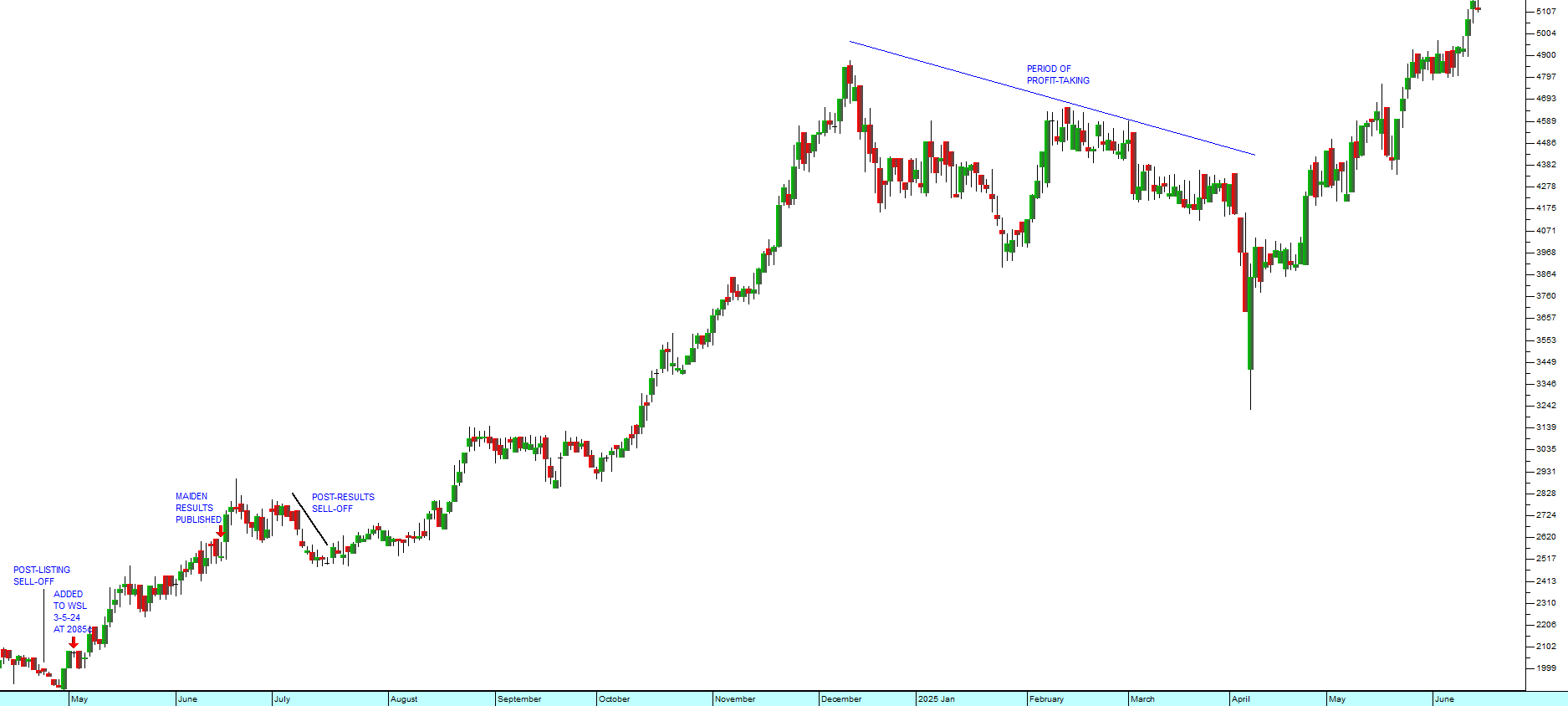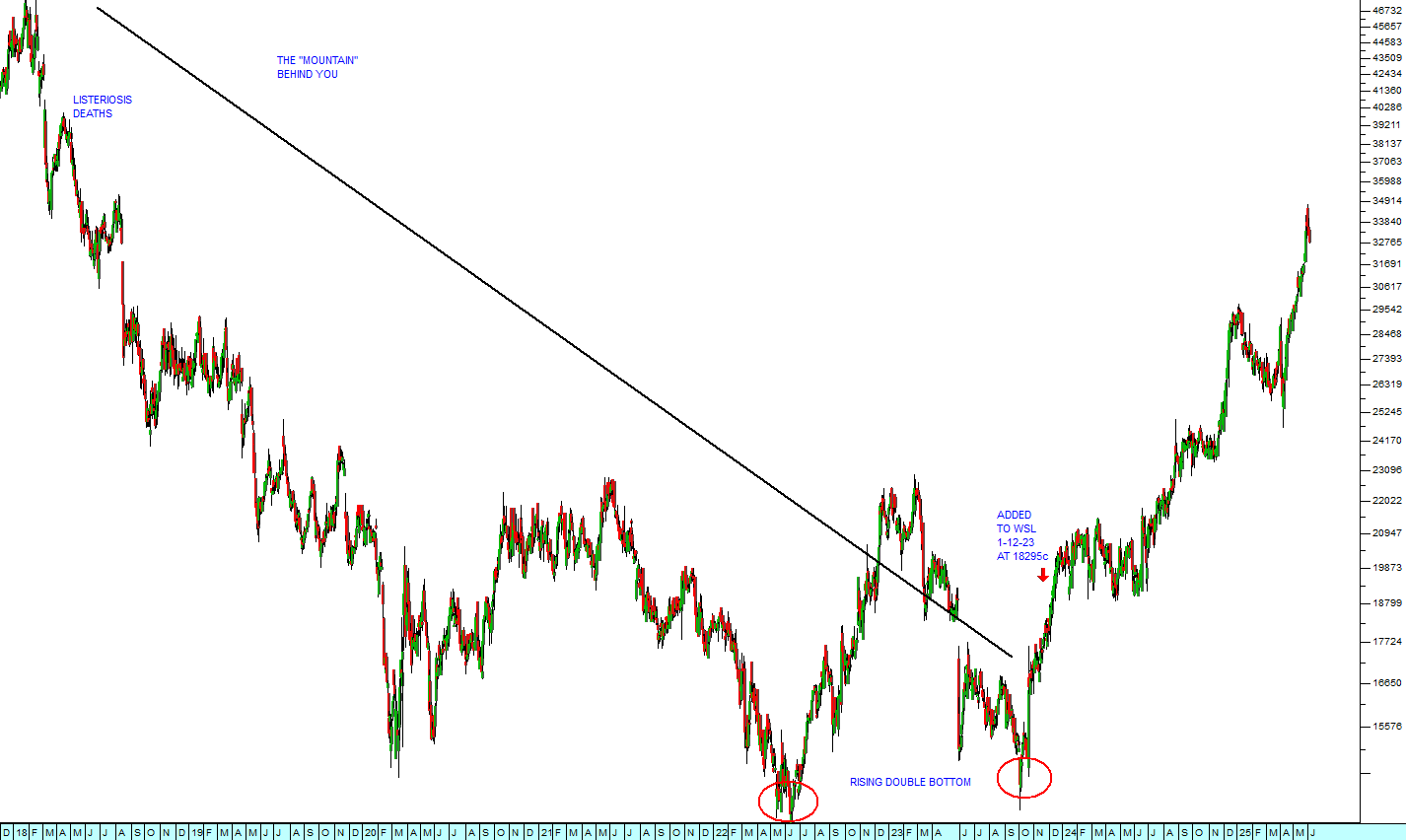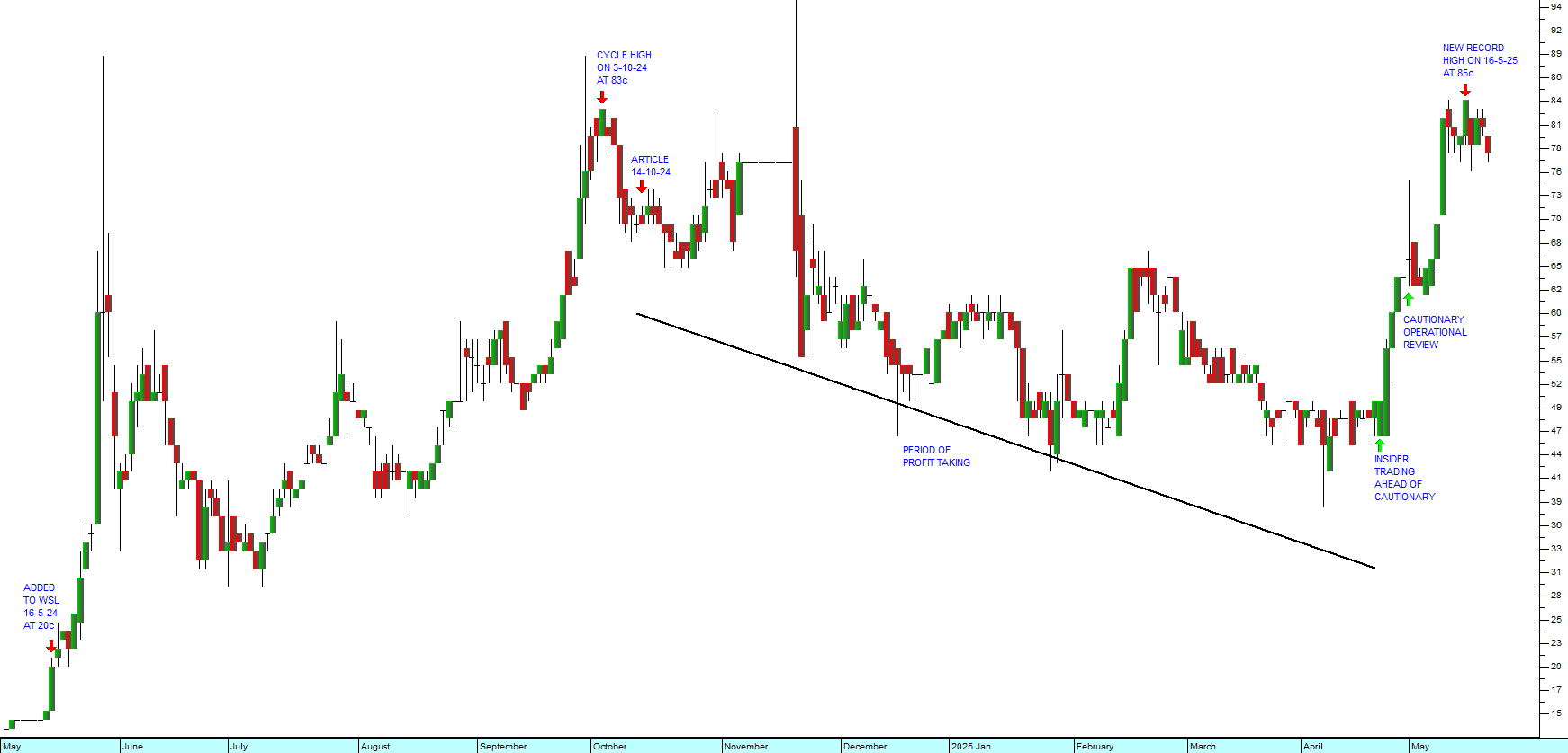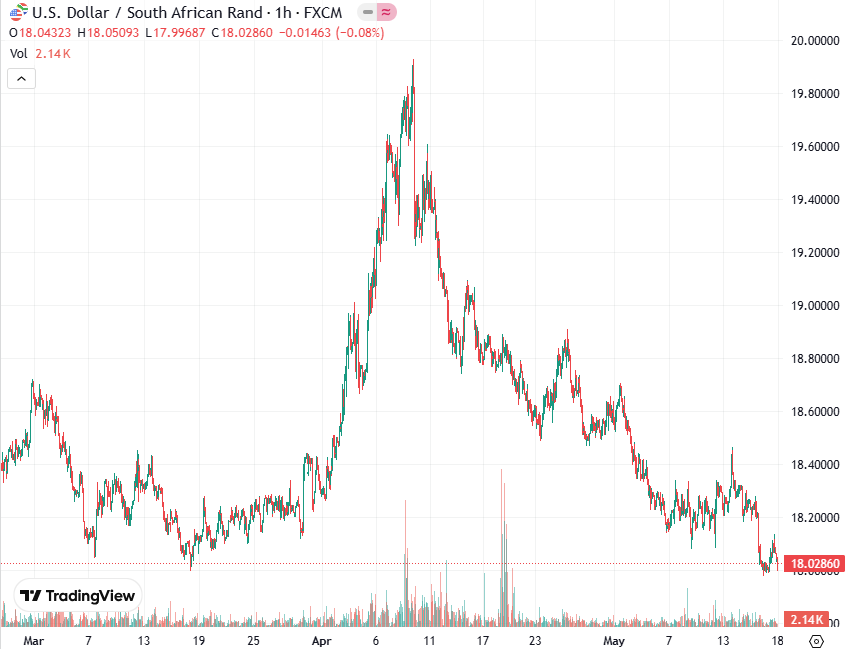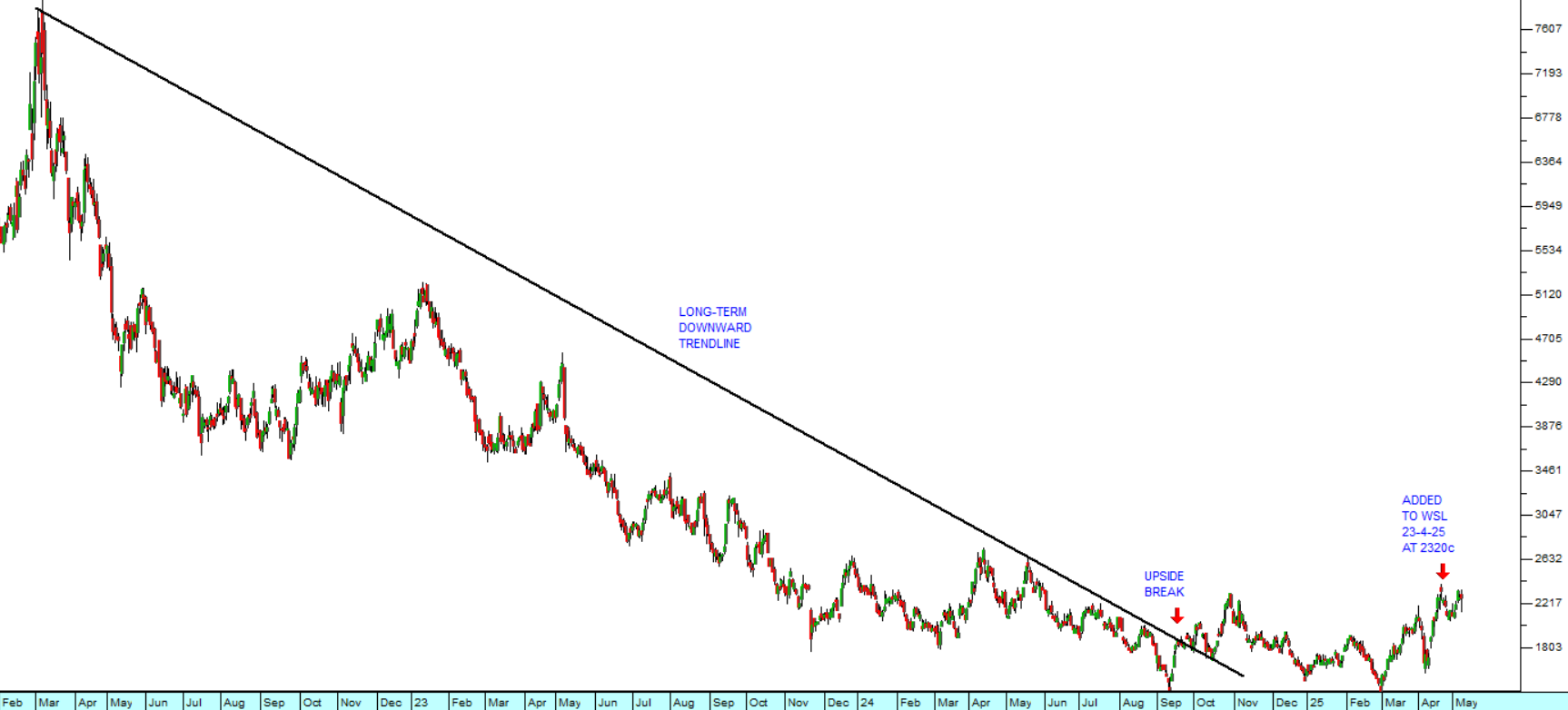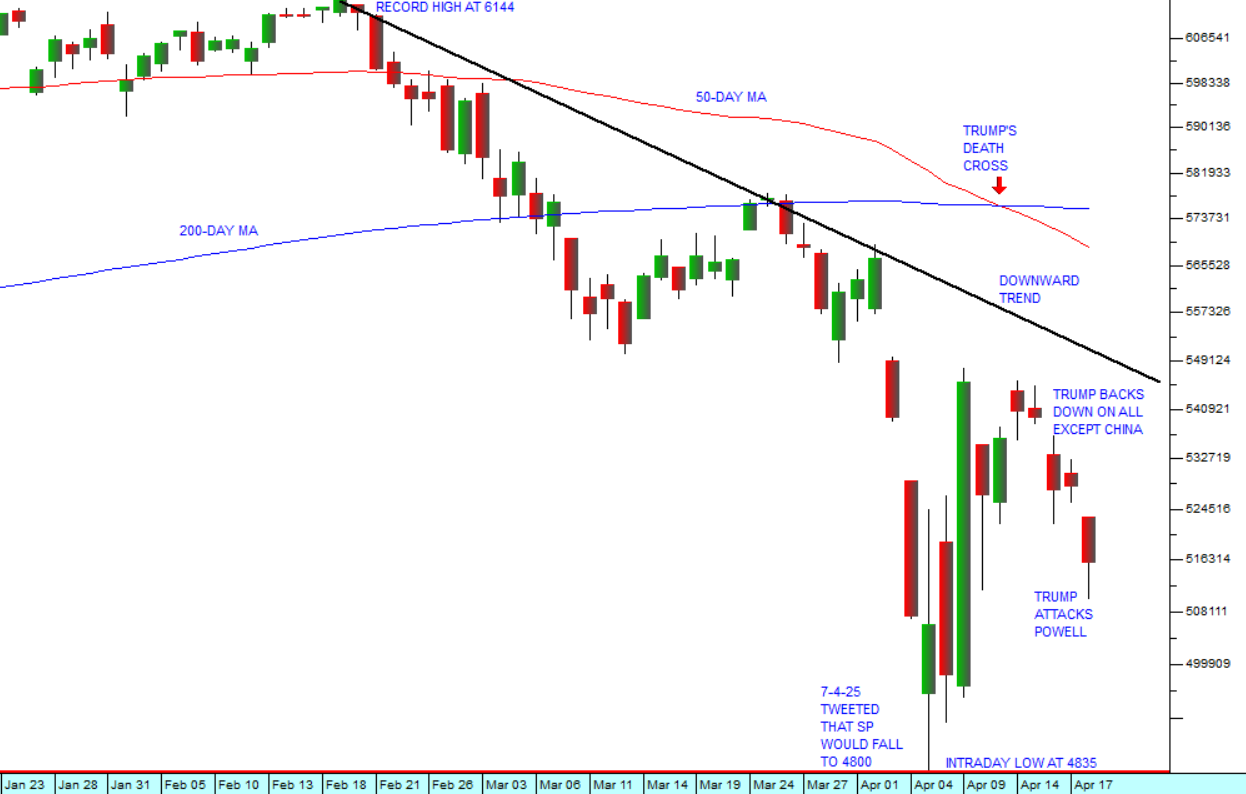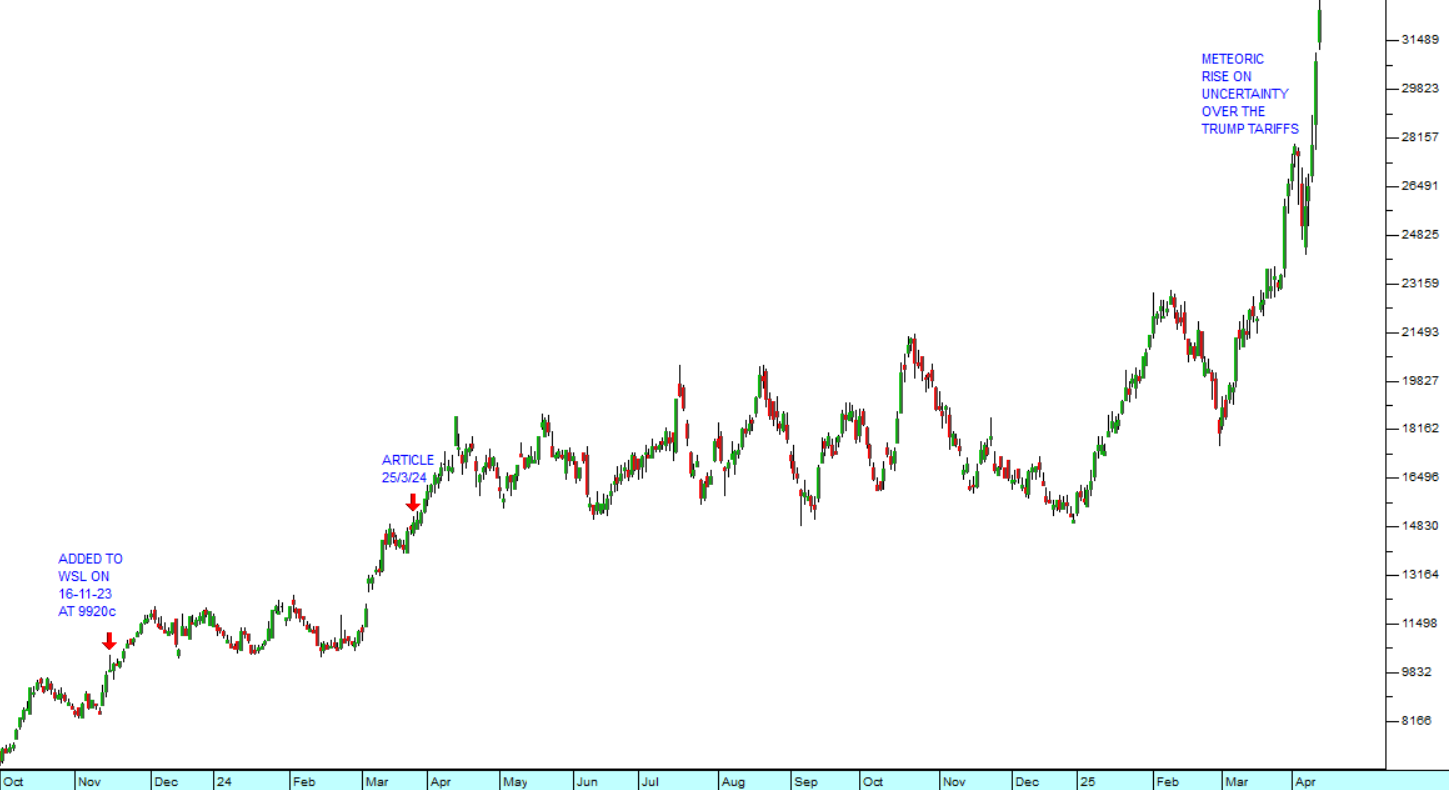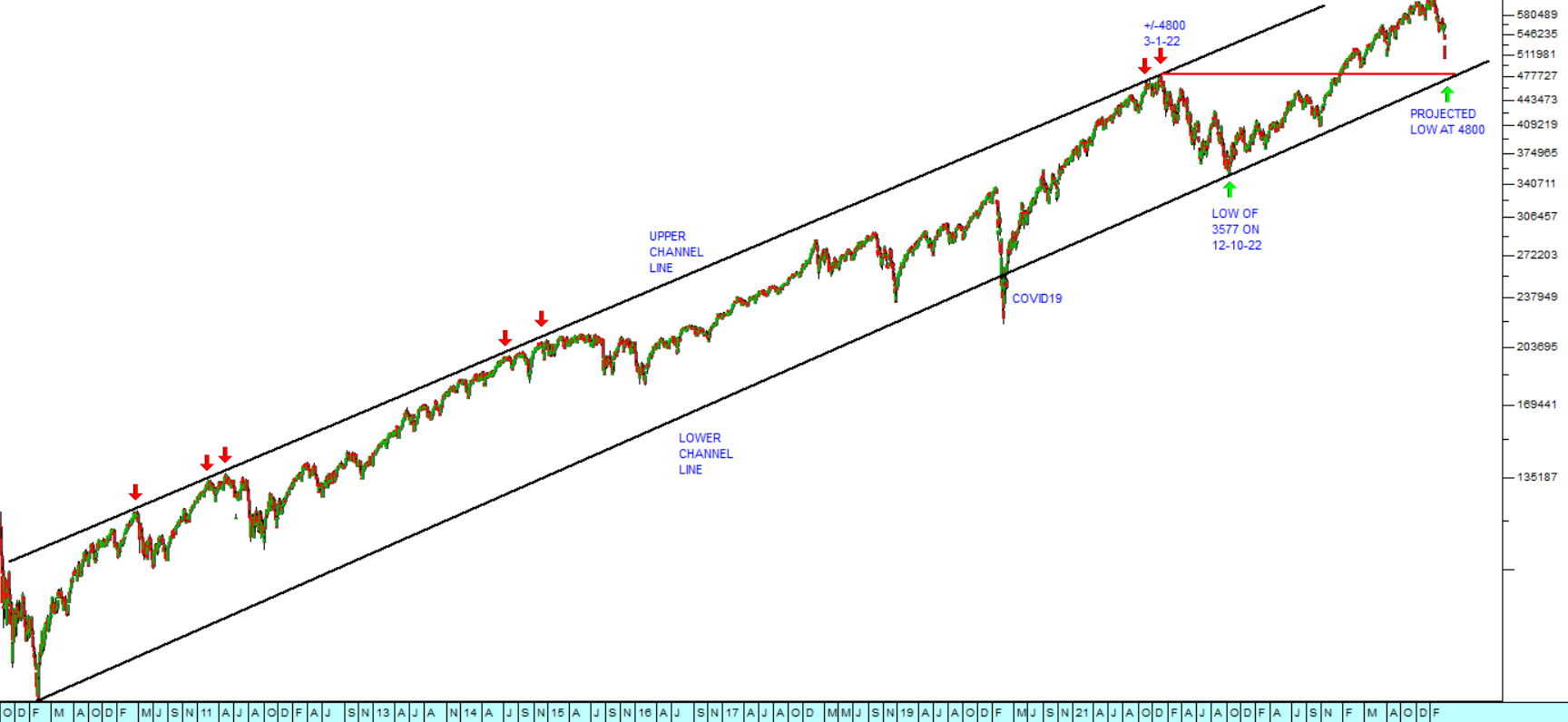Combined Motor Holdings
24 April 2017 By PDSNETCombined Motor Holdings (CMH) is one of those companies that is just out of favour with the big institutional fund managers. It is clearly a blue chip share with a long track record of rising earnings, and yet because it is in the motor trade, which has been doing badly in the past year, the share has been bid down to a P:E of 7,5.
Over the past seven years, CMH�s earnings per share have been as follows:
2010 50,6c
2011 111,2c
2012 121,4c
2013 144,5c
2014 156,8c
2015 162,7c
2016 223,5c
This shows an average annual growth of 19,6% per annum over six years and puts the company on a P:E Growth ratio of 0,38 - indicating excellent value. If management is capable of growing earnings per share by 8% in a year when their turnover fell by 7% (as they did in the year ended February 2017) then you know that this is a highly efficient and well run business. We also advocate looking at any high-quality share which is trading on a dividend yield of 5% or more. CMH is currently trading on a dividend yield of over 6% - which should at least make it worthy of your attention. The share's price chart over the past 8 years is as follows:
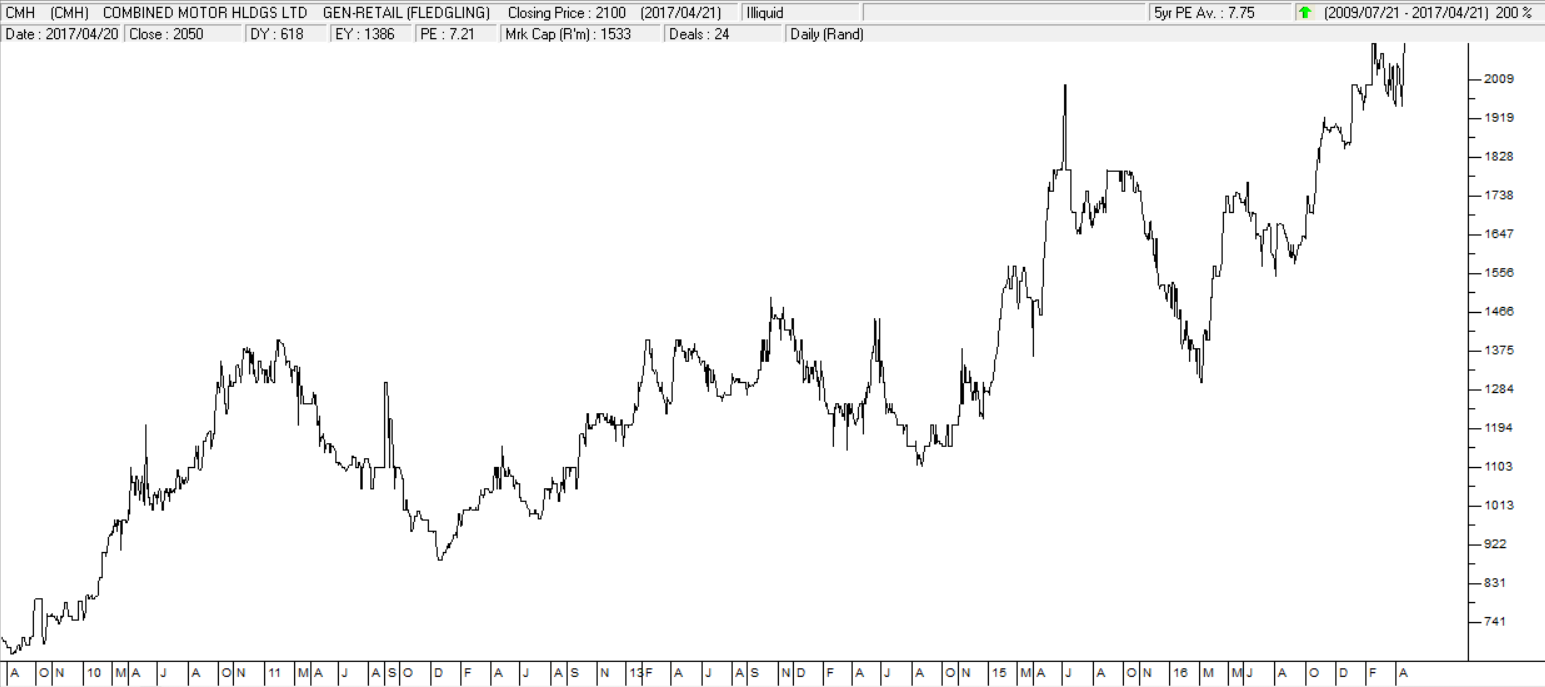
Of course, what would make a huge difference to CMH would be any improvement in the South African economy. Right now, immediately following the ratings downgrade and with some analysts saying that a recession is inevitable, it is difficult to get enthusiastic about any sort of recovery. But that is the nature of being a contrarian , (to quote Warren Buffett), being greedy when everyone else is fearful. If you are not willing to take any risks then you are probably not going to make any money. CMH looks like a good risk to us.
DISCLAIMER
All information and data contained within the PDSnet Articles is for informational purposes only. PDSnet makes no representations as to the accuracy, completeness, suitability, or validity, of any information, and shall not be liable for any errors, omissions, or any losses, injuries, or damages arising from its display or use. Information in the PDSnet Articles are based on the author’s opinion and experience and should not be considered professional financial investment advice. The ideas and strategies should never be used without first assessing your own personal and financial situation, or without consulting a financial professional. Thoughts and opinions will also change from time to time as more information is accumulated. PDSnet reserves the right to delete any comment or opinion for any reason.
Share this article:

